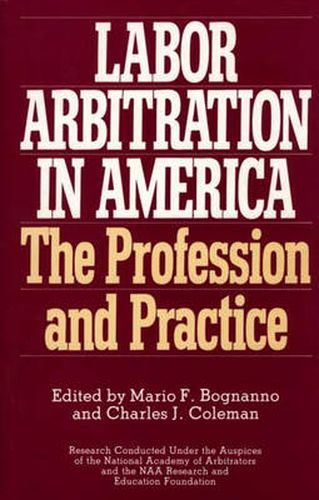Readings Newsletter
Become a Readings Member to make your shopping experience even easier.
Sign in or sign up for free!
You’re not far away from qualifying for FREE standard shipping within Australia
You’ve qualified for FREE standard shipping within Australia
The cart is loading…






Bognanno and Coleman offer the most comprehensive, current, and valuable work on arbitrators and their professional practice. The contributors to this volume describe paths of career entry, compensation, demographics, market conditions facing arbitrators, and caseloads. The empirically based findings are drawn from a representative sampling of all the nation’s arbitrators and afford a previously unavailable picture. The reader gains important insights into these decisionmakers’ backgrounds, career development, arbital experiences, and aspirations.
This work is especially important because many of the arbitrators’ characteristics, which are captured and described herein, are seen to be enduring or open only to change over an extended time period. The material, fascinating in its detailed analysis of a vital but surprisingly unstudied profession, presents a rich analysis of an occupation that has played a societal role of major significance from earliest times. A work, accordingly, of widespread interest and value relating to the ever fertile fields of dispute resolution.
$9.00 standard shipping within Australia
FREE standard shipping within Australia for orders over $100.00
Express & International shipping calculated at checkout
Bognanno and Coleman offer the most comprehensive, current, and valuable work on arbitrators and their professional practice. The contributors to this volume describe paths of career entry, compensation, demographics, market conditions facing arbitrators, and caseloads. The empirically based findings are drawn from a representative sampling of all the nation’s arbitrators and afford a previously unavailable picture. The reader gains important insights into these decisionmakers’ backgrounds, career development, arbital experiences, and aspirations.
This work is especially important because many of the arbitrators’ characteristics, which are captured and described herein, are seen to be enduring or open only to change over an extended time period. The material, fascinating in its detailed analysis of a vital but surprisingly unstudied profession, presents a rich analysis of an occupation that has played a societal role of major significance from earliest times. A work, accordingly, of widespread interest and value relating to the ever fertile fields of dispute resolution.